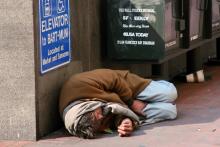Land Library Search
Through our robust search engine, you can search for any item of the over 73,000 highly curated resources in the Land Library.
If you would like to find an overview of what is possible, feel free to peruse the Search Guide.
/ library resources
Showing items 1 through 9 of 15.Fishery plays a crucial role in poverty and hunger alleviation. It is therefore all the more important to secure the long-term conservation of fish stocks as a natural resource and to ensure fair access to them.
The global demand for fish and fish products is continuously increasing. However, fisheries management is still insufficient, leading to over-exploitation, illegal fishing and massive post-harvest losses. Our authors describe what has to be done.
Aquaculture holds a big potential to satisfy the growing demand for aquatic food. Setting out from lessons learnt in past development projects, our author describes what fish farming systems must look like to fit the needs of smallholders and the environment.
During the last few years, the donor community has increased its efforts to reduce the large amounts of fish lost in the distribution chain in artisanal fishery, an endeavour that ought to be welcomed in principle.
The demand to eradicate extreme poverty and hunger has been the centrepiece of the Millennium Development Goals; the first MDG stands for the inextricable link between poverty and people’s ability to access safe, nutritious and sufficient food.
The sustainable management of soils is crucial to achieving the Sustainable Development Goals. This is evidenced by the analysis of the role soils play across the proposed agenda. However, some key aspects have not been sufficiently considered so far.
The Sustainable Development Goals (SDGs) will amount to little unless backed by reliable indicators. Only with good metrics can the agenda be implemented and progress measured.
The Sustainable Development Goals differ radically from the current Millennium Development Goals in many aspects. Our author demonstrates the challenges that departing from a donor-oriented development framework poses – particularly for the North, and also with a view to its own development.
With reference to the “One World – No Hunger” Initiative, Stefan Schmitz shows how food policies can support the attainment of the Sustainable Development Goals and highlights the interdependencies between the individual goals and targets.








